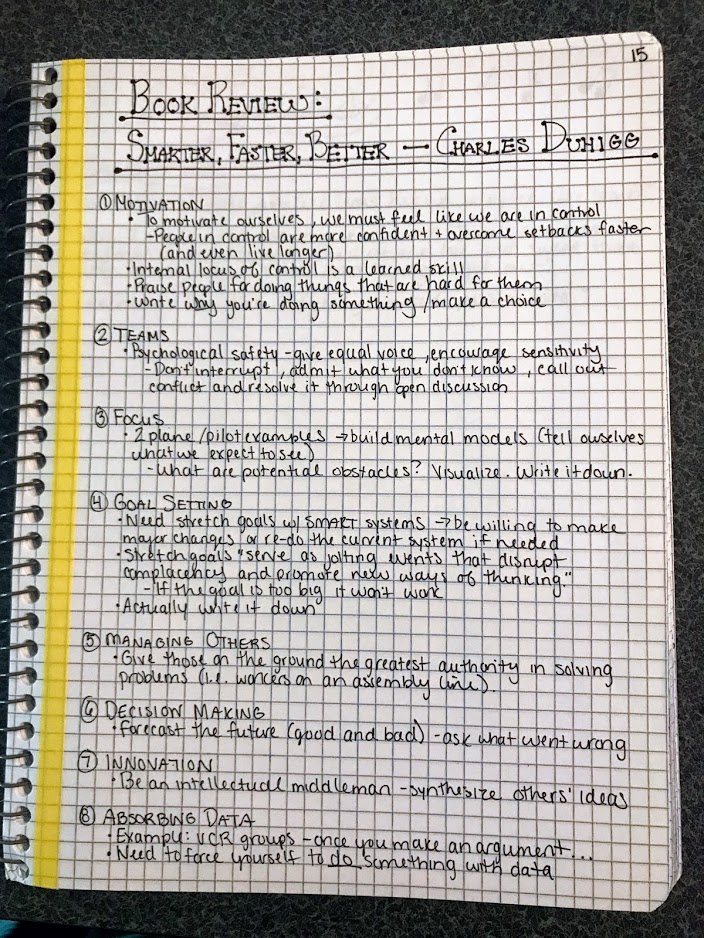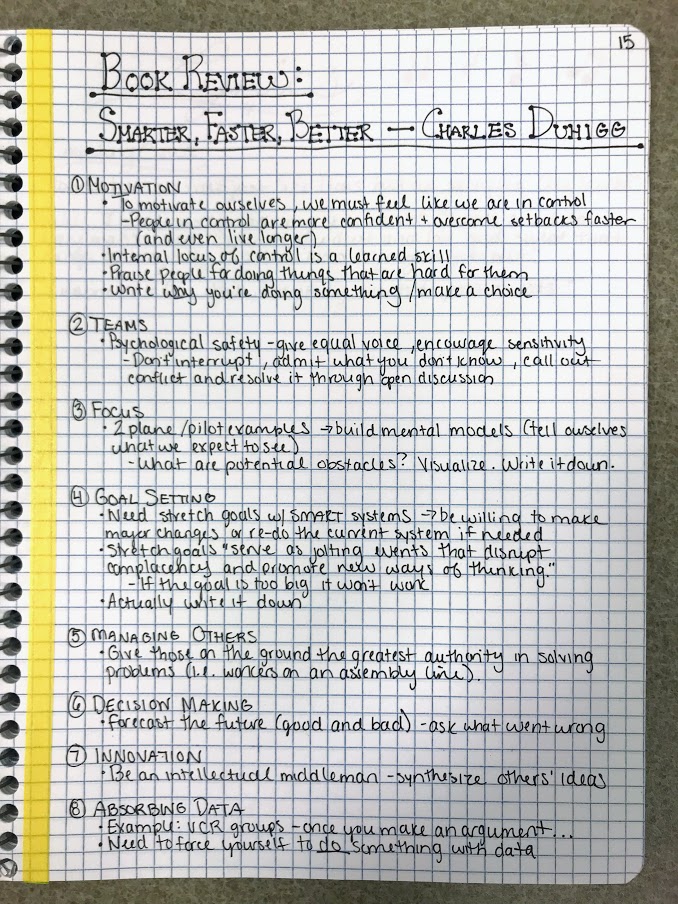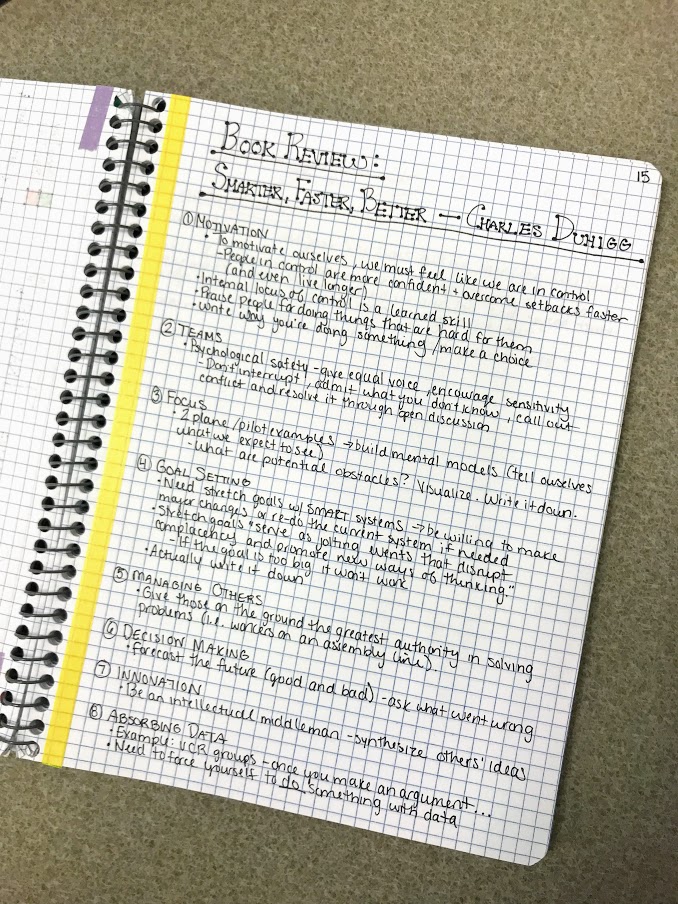Book Report: Better, Smarter, Faster by Charles Duhigg
As I mentioned in a previous post, I am a nerd for many reasons, one of which is that I like to write a book report after reading a book that I found to be helpful or interesting in some way. If I find myself writing notes in the margins or underlining fascinating quotes, it means that I learned things that at minimum I hope not to forget, but at maximum should intentionally implement into my life.
The first book report I ever wrote in my non-journal was about Smarter, Faster, Better: The Transformative Power of Real Productivity by Charles Duhigg. Allow me to tell you a little bit about what I learned so that you can either A) run out and buy the book yourself, B) decide it’s not for you or C) save you the trouble from buying it because I am basically going to tell you all of the key points (at least those I can relate to goal setting). There are more chapters and topics than I talk about in this post though, so check it out for yourself if you can.
This book was all about how to be more productive. The author interviewed roughly 500 successful, productive people. Some you have definitely heard of, others were people just like you and me. The book is made up of just the things that ALL 500 people said they did. If he learned tips that worked for some and not others, they didn’t make it into the book.

So with that in mind, here are the top 5 useful things from my book report that I have been applying to setting, achieving, and failing at my goals:
- Motivation
- To motivate ourselves, we must feel like we are in control; people in control are more confident and overcome setbacks faster. They even tend to live longer. This book cited a study in which researchers found that people in nursing homes who refuse to eat at the designated time or demand different food tend to outlive their peers. Thanks to learning that, I now have new life goals for when I am 90.
- We should praise people (especially kids) for doing things that are hard for them. Motivation is often about getting through something challenging, so teaching people at a young age to persevere is essential.
- To achieve a difficult goal or overcome an obstacle, write why you are doing something and make a choice about it, no matter how small.
- Maintaining Focus
- Anticipating your potential obstacles – and writing them down – will help you keep your focus, particularly on a long-term goal. How exactly will you overcome each obstacle that could arise? What plans can you put in place now?
- Tell yourself what you expect to see beforehand. Visualize it. I can still hear my dad telling me before my high school soccer games, “Visualize yourself running down the field on a breakaway…”. Too bad I wasn’t better at listening to his advice or I’d probably have a lot more goals and assists under my belt :(.
- Goal Setting
- This book defines a stretch goal as “as goals that serve as jolting events that disrupt complacency and promote new ways of thinking”. In other words, to achieve something major you may have to make a major change. Stay tuned for a future post coming on this topic!
- It is best to set a stretch goal with a SMART system. For something big, we need to have a solid plan in place complete with action steps, resources, contingency plans, and more.
- Decision Making
- Forecast the future to the best of your ability; specifically, when it comes to your goals, envision the best outcome, and a future in which things went wrong. Then ask yourself for each scenario, what went right, and what went wrong? This sounds like a fun activity I may experiment with (like I said, I’m a nerd).
- Innovation
- This was one of my favorite tips from the book: be an “intellectual middleman”. It may not sound very thrilling, but it is certainly refreshing. There is so much pressure to come up with new ideas, but according to the people the author interviewed, something they have all done instead is simply synthesize others’ ideas more effectively. I mean, that is essentially what I am doing with this blog – very little of the posts I write are purely original content. I am pulling resources, quotes, and ideas from other places and bringing them together. How might you be able to do this in your daily life?
So there you have it! And on that note, a thought experiment:
What have you retained from the last book you read? What can you apply to your goals?




